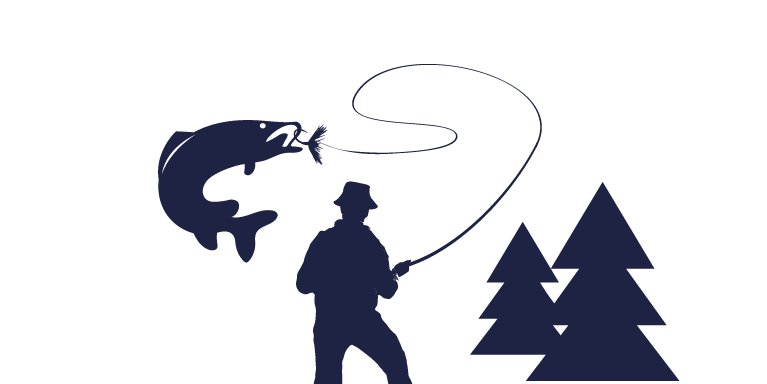People living with alcohol use disorder (AUD) typically find it difficult to control their alcohol use or stop drinking when they try. This mental health condition can lead to ongoing physical and mental health symptoms, along with unwanted consequences at work, school, or in your personal relationships. « A good night’s sleep is important for everyone but particularly for people who struggle with mental health conditions like depression and anxiety, » says Volpicelli. « Poor sleep quality can exacerbate existing mental health issues. »
The Experience Blog
A person drinking alcohol may experience impaired judgment or slower reaction times. It can also decrease feelings of anxiety and make some people chatty or sociable, even energized. It can also feel rewarding to drink, as alcohol releases dopamine in the brain, encouraging you to keep drinking. Individuals struggling with loneliness often turn to substance abuse as a replacement for healthy relationships.
Legality and Availability of Substances
People may develop an addiction to alcohol after using it to cope with stress or traumatic life events. Addressing emotional or mental health concerns can help people with AUD find ways to cope that do not involve alcohol. Another medication, called disulfiram, causes negative symptoms such as nausea after consuming alcohol. These side effects may help discourage people with AUD from drinking. Consuming too much alcohol too quickly can affect breathing, body temperature, and heart rate.
Treatment of Co-Occurring AUD and Depressive Disorders
The most common treatment options are included below, but know that recovery requires a personalized treatment plan that best suits your mental health needs. If a person takes depressants for a long time, they may develop physical dependence and substance use disorder. Research has also shown that drinking alcohol increases the risk of developing cancer. If you’re undergoing alcohol withdrawal symptoms or want to reduce alcohol cravings, you may be prescribed medication. The FDA-approved options include naltrexone, acamprosate, and disulfiram.
Does Depression Drive You to Drink Alcohol?
Most people don’t realize that what they perceive as reality is actually just a set of beliefs. The true reality of how the world operates is too massive for our human minds to comprehend. Therefore, we form sets of beliefs to interpret the reality around us based on our personal experiences, observations, and what is relevant to our needs. Today, into the fourth year of my sobriety and working as a sober, curious guide, I am still sometimes struck by how stark the gap between our beliefs and reality can be when it comes to alcohol. However, the good news is that within that gap also lies the key to weakening our desire to drink.
- Mutual-support groups provide peer support for stopping or reducing drinking.
- Behavioral treatments—also known as alcohol counseling, or talk therapy, and provided by licensed therapists—are aimed at changing drinking behavior.
- Researchers agree that alcohol and depression have a bidirectional relationship, meaning that depression can cause overuse of alcohol, but overuse of alcohol can also cause depression.
- For example, alcohol may temporarily reduce anxiety and lower inhibitions.
- Understanding the link between alcohol and depression can help you better manage depression after drinking, or better yet, prevent it from happening in the first place.
In the short term, drinking alcohol can make you feel good, sociable, and even euphoric. One study by the National Institute on Alcohol Abuse and Alcoholism found that people with alcohol use disorder (AUD) were 2.3 times more likely to have major depressive disorder than people who did not have AUD. People who drink to cope with psychological distress may drink more over time, especially when they wake up feeling anxious or depressed. Chronic drinking significantly increases the risk of alcohol abuse.
For example, a person with frequent episodes of severe depression may turn to drinking to self-medicate. People who frequently drink are more likely to experience episodes of depression, and they may drink more in an attempt to feel better. Previous trauma is also a risk factor for alcohol misuse and depression. Children who have major depression as a child may drink earlier in life, according to one study.
Alcohol use can also affect how antidepressants work, which can affect depression treatment. Even if you’re drinking the same alcoholic beverage at the same rate as someone else, your reactions will differ. It’s important to remember that alcohol is a depressant, and you can overdose if you drink too much. Excessive drinking can also harm your finances, relationships, and physical and mental health, so it’s important to seek professional care if it becomes a problem.
Even absent clinical depression, however, Dattilo notes that moderate amounts of alcohol consumption also « slows down the system, » which can lead to feelings of melancholy in some users. When you drink too much, you’re more likely to make bad decisions or act on impulse. As a result, you could drain your bank account, lose a job, or ruin a relationship. When that happens, you’re more likely to feel depressed, particularly if you have a family history of depression.
A person should speak with a healthcare professional if they think they have AUD. A therapist can help individuals with AUD develop coping skills to reduce stress and manage cravings. The type of alcohol in alcoholic beverages is ethanol, or ethyl alcohol. Manufacturers create alcoholic drinks through a process called fermentation. As Annie Grace, the author of This Naked Mind, brilliantly puts it, « When there is no perceived benefit, there is no desire. » By reshaping our beliefs about alcohol, we have the power to weaken our cravings. My favorite free tool is the 30 Reasons Why People Drink checklist.
It’s not clear if alcohol directly acts on all those receptors or if they’re a downstream result of its action elsewhere. The smoking gun would be to isolate a receptor and show that alcohol affects it. If you begin to notice any unwanted side effects — physical or emotional — while drinking, it may be best to call it a night. Having an extra drink or two once in a while doesn’t automatically translate to heavy drinking.
Research indicates that it can have negative effects even in low amounts. Furthermore, alcohol overuse can damage the body and may lead to AUD. Yes, initially and in small doses, alcohol does act as a stimulant.
When other factors beyond alcohol play into your mood, however, feelings of depression might persist even after your hangover improves. Many people with AUD do recover, but setbacks are common among people in treatment. Behavioral therapies can help people develop skills to avoid and overcome triggers, such as stress, that might lead to drinking. Medications also can help deter drinking during times when individuals may be at greater risk of a return to drinking (e.g., divorce, death of a family member). Behavioral treatments—also known as alcohol counseling, or talk therapy, and provided by licensed therapists—are aimed at changing drinking behavior.
Little did I know that alcohol packs a punch with seven calories per gram, almost as much as fat. This realization is just the beginning of my questioning other beliefs I held about alcohol and the benefits I perceived it offers. Drinkchat is a free service for anyone who is looking for information or advice about their own, or someone else’s, alcohol use. Their trained advisors are on hand between 9am and 2pm every weekday to give you confidential advice through an online chat service. Alcohol is known to affect several nerve-chemical systems which are important in regulating mood.
It probably won’t hurt to have a glass of wine or beer once in a while for social reasons unless you have a health condition that prevents you from drinking. But if you turn to alcohol to get you through the day, or if it causes trouble in your relationships, at work, in your social life, or with how you think and feel, you may have a more serious problem. There’s also a strong link between serious alcohol use and depression.
If you feel depressed even when you don’t drink, or you drink because you feel depressed, it’s best to reach out to a mental health professional. Research has linked the development of depression symptoms in adolescents to regular or heavy alcohol use. Adults who met criteria for alcohol use disorders also had a higher risk for depression. If you’re having trouble stopping or reducing your drinking, Volpicelli suggests talking with your doctor about getting support from a mental health counselor or alcohol treatment program. It’s common to experience co-occurring mental health disorders, especially depression and anxiety, in tandem with AUD, says Volpicelli. However, this may actually worsen your anxiety and could lead to alcohol dependence.
However, alleviating depression does not resolve the alcohol use disorder. In some cases, you may receive a dual diagnosis of a major depressive disorder (MDD) and an alcohol use disorder (AUD). This co-occurring disorder isn’t uncommon, but it can be difficult to treat. Alcohol and depression are connected in several ways, and the two often feed off of one another. People may turn to alcohol as a way to cope with mood problems, but drinking alcohol can also contribute to symptoms of depression.
One size does not fit all and a treatment approach that may work for one person may not work for another. Treatment can be outpatient and/or inpatient and be provided by specialty programs, therapists, and health care providers. Here are five ways that drinking too much alcohol can affect your long-term mental https://rehabliving.net/alcoholism-recovery-stages-six-steps-to-beat/ and emotional well-being. By Sarah Bence, OTR/LBence is an occupational therapist with a range of work experience in mental healthcare settings. If you have depression and drink too much alcohol, then you may be wondering if there are any treatments or lifestyle changes for someone in your situation.
But for some people, these feelings don’t go away – they get worse and their feelings of depression can start to interfere with everyday life. It also has some stimulant effects, Addiction Center says, especially if consumed https://rehabliving.net/ in small quantities. Stimulants are defined as drugs that produce an abundance of dopamine and can have effects like euphoria, talkativeness, energy, difficulty sleeping and increased pulse and blood pressure.
If you drink every day, or almost every day, you might notice that you catch colds, flu or other illnesses more frequently than people who don’t drink. That’s because alcohol can weaken your immune system, slow healing and make your body more susceptible to infection. The amount of alcohol a person consumes affects them more than the type of alcohol they drink. Doctors may prescribe stimulants to individuals with attention deficit hyperactivity disorder (ADHD) or narcolepsy. There are different types available, including trauma-specific therapy, dialectical behavioral therapy (DBT), cognitive-behavioral therapy (CBT), as well as individual, family, or group therapy.


No responses yet